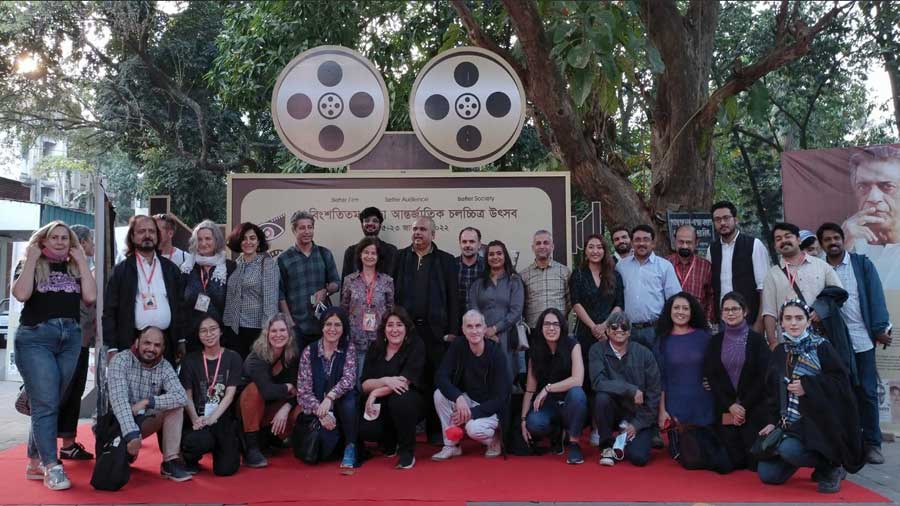Cinema is an inherent part of Bengali culture, and the Bengali's love for films goes beyond words. The same stands true for both sides of Bengal, epar and opar Bangla. The Dhaka International Film Festival (DIFF) has celebrated this love for cinema for more than 20 years. So, it was a delight to attend DIFF this year to celebrate its 20th anniversary.
Under the helmsmanship of festival director – Ahmed Muztaba Zamal – held from January 15 to January 23, this year’s festival had participants from more than 70 countries across the globe.
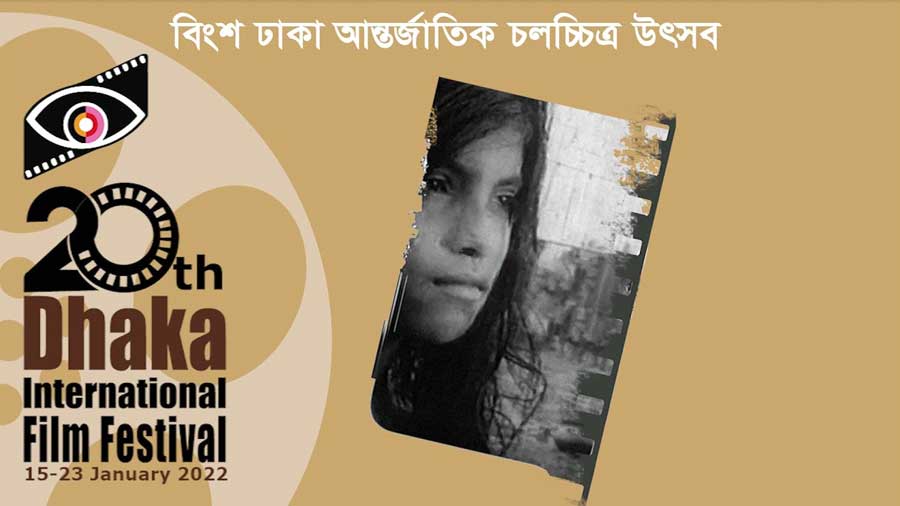
Official Poster of the 20th Dhaka International Film Festival
On the 15th as I entered the director’s lounge, accents ranging from Indian, Polish, European, Egyptian, Iranian, Russian, and many more, became the defining feature of the 20th Dhaka International Film Festival for me. I was in sheer awe of the organisers who managed to bring together more than 60 international delegates during the trying times of COVID. However, the sheer love of Rainbow Film Society (the organiser) and participating filmmakers made DIFF this year a marvel, and truly showcased the spirit of cine lovers.
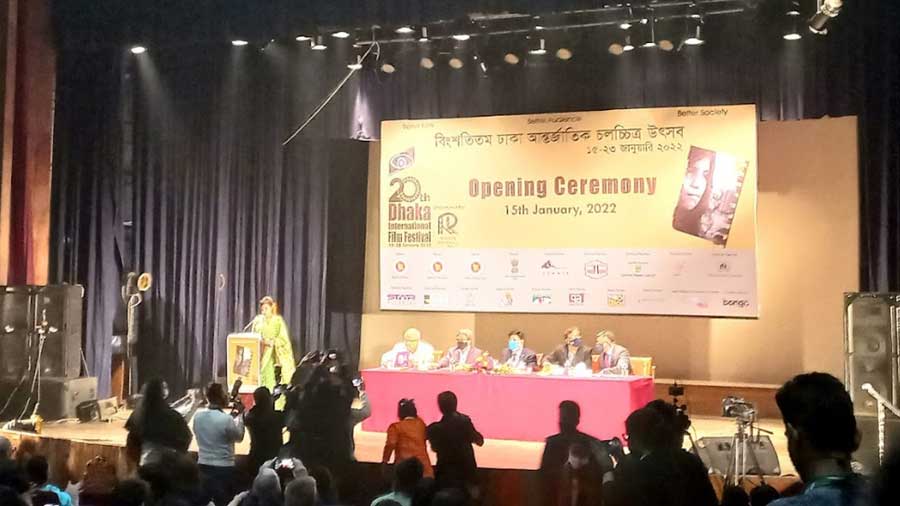
The opening ceremony of DIFF 2022 Courtesy: DIFF
The festival was mammoth both in scale as well as in spirit. It was inaugurated by the Foreign Minister of Bangladesh, Dr AK Abdul Momen, at the Bangladesh National Museum, with Bangladesh State Minister for Culture, K.M. Khalid and High Commissioner of India to Bangladesh, Vikram Doraiswami, as special guests. During the festival, 225 films were screened at multiple venues in Dhaka, including Alliance Francaise de Dhaka, Star Cineplex, Bangladesh Shilpakala Academy, Central Public Library and Bangladesh National Museum Auditorium.
This year the festival had 10 sections – Asian Cinema, Retrospective, Tribute, Wide Angle, Bangladesh Panorama, Cinema of the World, Children Films, Women Filmmakers, Short and Independent Films, and Spiritual Films. The Retrospective section screened films by Japanese filmmaker and screenwriter Yasujirō Ozu.
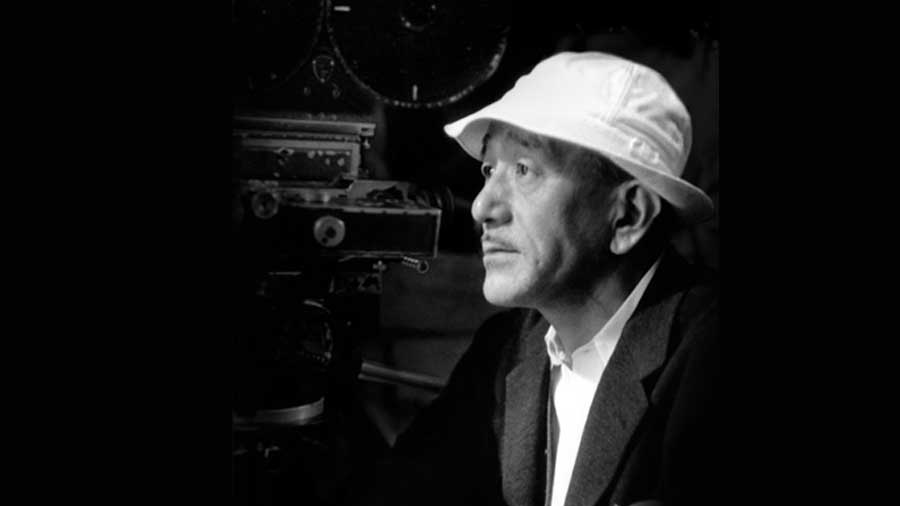
Japanese filmmaker and screenwriter Yasujirō Ozu, the focus of The Retrospective section IMDB
The festival also adorned two allied events: the Screenplay Lab and a two-day international conference on Woman in Cinema. The Screenplay Lab allowed filmmakers to pitch their films and win grants of $5,000, $3,000 and $2,000. It also became an excellent platform for filmmakers to network with producers, distributors and programmers from the global fraternity. The Woman in Cinema conference organised by DIFF in association with the Department of Women and Gender Studies, Dhaka University, incorporated talks and discussions around woman-centred narratives and woman filmmakers.
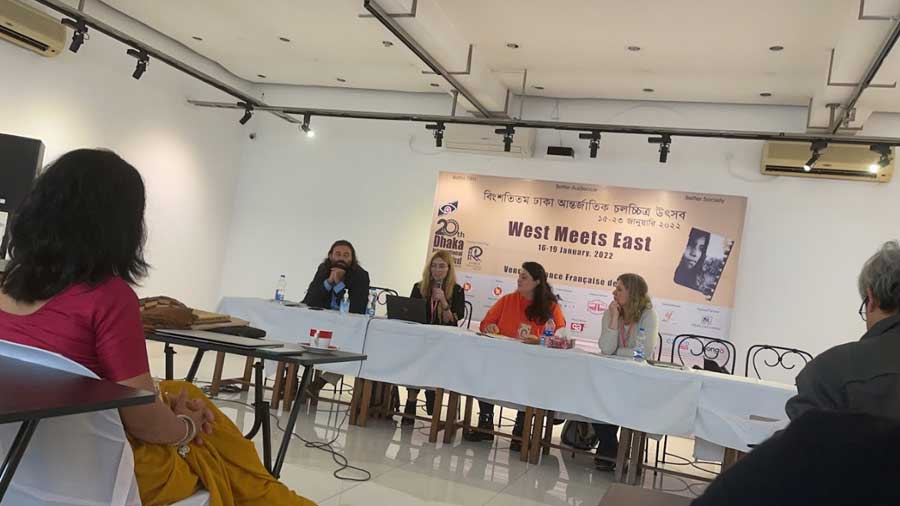
The Screenplay Lab allowed filmmakers to pitch their films and win grants Courtesy: Ipsita Barat
Borders do not define concerns of gender inequality
As a film academician and scholar, I was invited as a discussant on several panels of this conference. However, I was thrilled by not the discussions on stage but what was concurring offstage. During the conference, the tea and lunch breaks led to interaction and thriving discussions on the participation of women in cinema and the lack thereof. Witnessing the venue packed with women activists, film critics, scholars and filmmakers from more than 70 countries was an experience by itself. The conference had six keynote papers discussing European to Turkish cinema, keeping gender as the backdrop of the discourses.
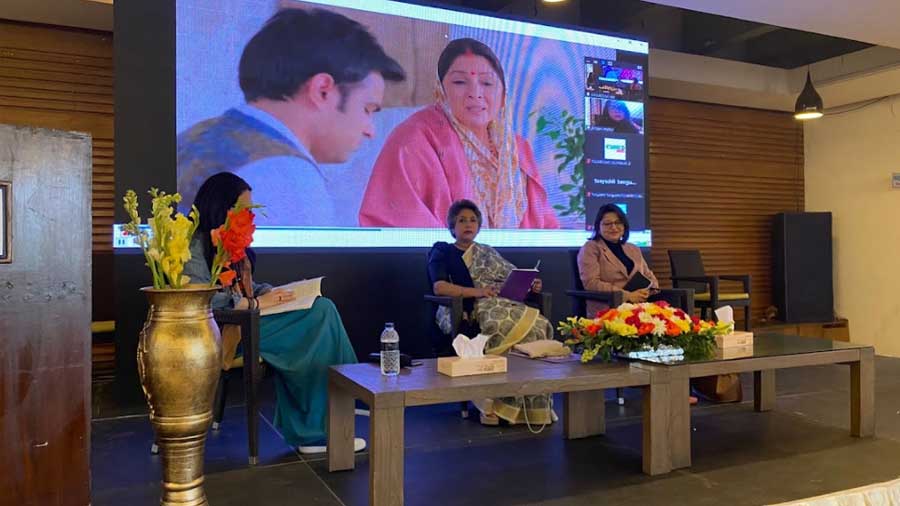
The Woman in Cinema conference, incorporated talks and discussions around woman-centred narratives and filmmakers Courtesy: Ipsita Barat
The realisation that dawned on me during the conference was that borders do not define concerns of gender inequality. Women filmmakers and scholars from different parts of the world questioned patriarchy during the conference. Nonetheless, the memory which I cherish most from this conference and the festival, in general, was meeting and making friends with women powerhouses such as Elaheh Nobakht (festival programmer, distributor and producer of Iranian cinema), Meral Melika Duran (political sociologist, cinema producer, critic, consultant), and filmmakers like Rajni Basumatary and Supriya Suri from India, Negin Ahmadi from Iran, Mika Sasaki from Japan and renowned Bangladeshi filmmaker Samia Zaman.
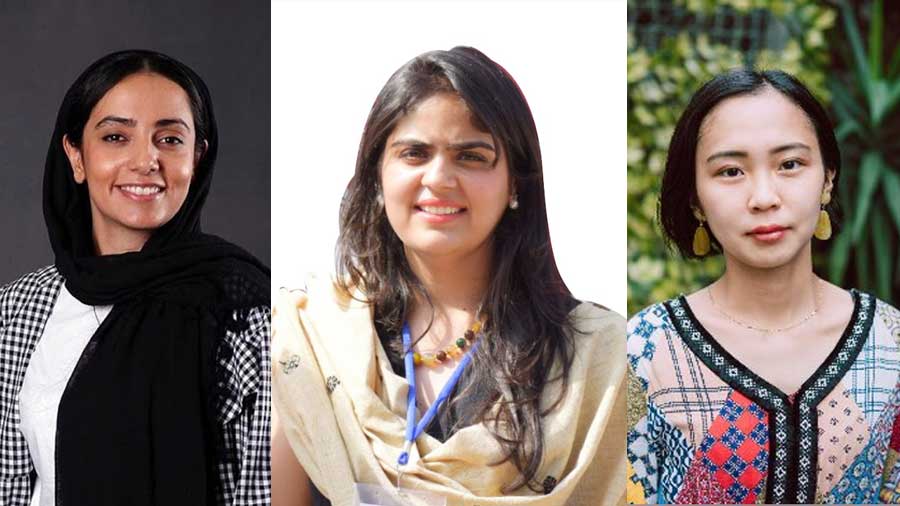
Meeting and making friends with women powerhouses such as (L to R) Elaheh Nobakht from Iran, Supriya Suri from India and Mika Sasaki from Japan, among others, was a highlight YouTube; IMDB; @sonarpakhi43/Twitter
Beyond the conference venue, watching the fantastic spread of films during the festival was a marvel. Films such as Iwona Siekierzynska's (Poland) Amatorzy and Mika Sasaki’s (Japan) Tagore Songs will remain with me. Furthermore, interacting with these filmmakers during the evening gatherings inspired and did enrich me both as an academician and a fellow cine lover.
Student volunteers and their love for cinema
To conclude, DIFF would not have achieved its finesse without the hard work of its student volunteers. Their sheer desire to learn and their love for cinema was unmatched. Being in academia, student participation is what I most look forward to in a film festival, and DIFF left me spellbound.
I wholeheartedly thank DIFF 2022 for giving me beautiful memories and new friends to cherish for the years to come. I was also deeply touched by the sheer compassion shared by the Bangladeshi people, which made the other side of Bengal feel a lot like home.
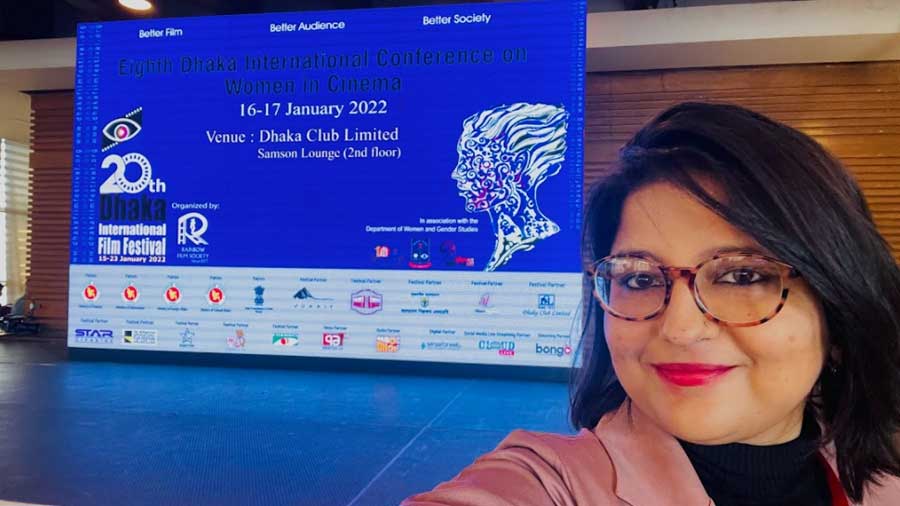
Dr Ipsita Barat is the Head of Mass Communication & Videography, and Assistant Professor at St. Xavier’s College (Autonomous), Kolkata.
